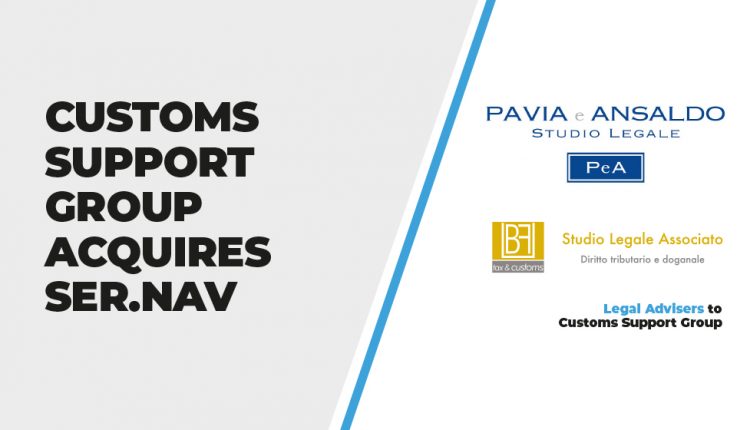Customs Support Group Acquires Ser.Nav
Customs Support Group were advised on the acquisition by UBFP Studio Legale and Pavia e Ansaldo.
UBFP Studio Legale and Pavia e Ansaldo assisted European customs sector organisation Customs Support Group in the acquisition of the entire share capital of Ser.Nav, a company active in the customs consultancy and shipping agency sector.
The acquisition is intended to strengthen Customs Support Group’s strategy of penetrating the Italian market through an established operator which, with its presence in 17 strategic locations, guarantees operations with the main commercial ports and logistics hubs in Italy. The acquisition was made through the newco CS Italy.
Customs Support Group was assisted by UBFP Studio Legale, with partners Luca Piemontese and Elena Fraternali handling the customs aspects of the operation. Pavia e Ansaldo, with partner Anna Saraceno and associate Giovanni Gila assisting on the corporate and commercial aspects and partner Valentina Simonelli on the labour aspects. PwC TLS and KPMG also provided assistance on tax and financial aspects respectively. Ser.Nav was assisted by Giovannelli e Associati and Equita K Finance.
An Interview With Luca Piemontese & Elena Fraternali at UBFP Law Firm
What are your top concerns when advising on a significant acquisition like this?
The most relevant aspect to take into consideration is the risk assessment related to the acquisition. Customs brokers’ activity has several potential risks regarding the customs liability, so the evaluation of the compliance with the law assumes significant importance. Another aspect that we must consider is that, even if the customs system is regulated at an EU level, every Member State has particularities and it is essential to consider these different approaches with reference to the acquisition.
How do you work through these concerns to make sure the move is a beneficial one for your client?
Normally, we try to identify the sensitive aspects of the transaction and to find possible solutions that can be suitable to the customer’s business and that can be adopted by the latter with immediate effect.
If it is not possible to avoid certain risks, it is necessary to insert in the agreement specific provisions as representation and warranties, in order to make the Seller liable for potential damages occurred after closing but arising from critical issues already existing before Closing.
What customs issues have the potential to arise in mergers of this kind? Did you encounter any during your work?
From a customs point of view, the aspects to be taken into greater consideration concern the type of representation used by the customs broker for the submission of customs declarations. If the latter uses indirect representation, the customer must be aware that it would be co-liable with the goods’ owner for any assessment related to customs declarations, until the expiry of the statute of limitation of the customs debt. In our work, we encountered this problem connected to several disputes that involved the customs broker who had acted in indirect representation.




